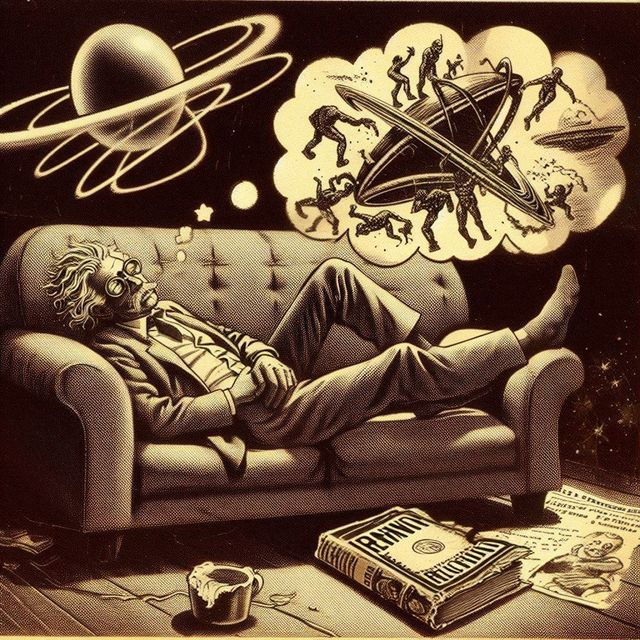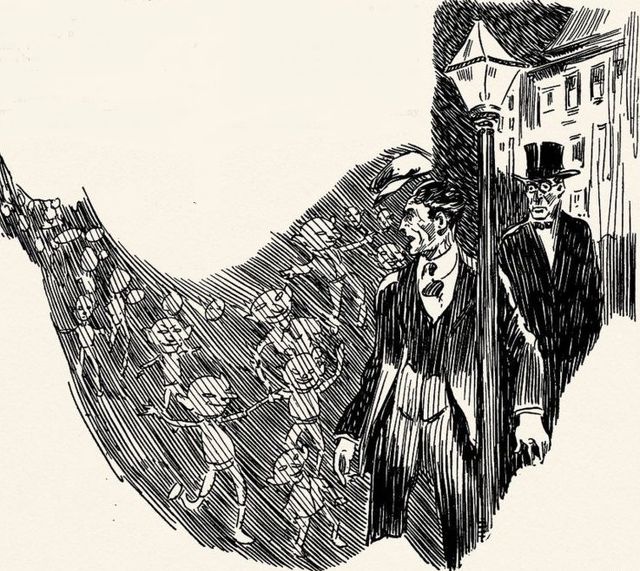-
Vijay Fafat
- Published on
The narrator borrows a book on Relativity from his friend and goes off to sleep midway. Then a sequence of fierce, four-dimensional “Jupiterians” who gambol around in mayhem in his dream while one Professor Nutt explains to his that while Martians and Venusians are 3-dimensional, the residents of Jupiter live in 4-D. The mayhem stops after the Jupiterians drink up the narrator’s whiskey and are unable to move easily through the fourth dimension. Plus the Chicago dust settles on the spaceship and somehow that makes it unable to move. The dreamers wakes up with a start, having torn the book to shreds in his sleep, and quips:
“Only twelve men in the whole world understand the Einstein theory, it is said. If I had read the book, I would have been the thirteenth, and that would be unlucky.”
The story does not indulge in any fancy geometric explanations of higher dimensions, as is common in such yarns. Instead, it weaves in references to the effects of 4-D. Like packing six hundred thousand Jupiterians in a small spaceship, turning a bird inside out, reaching inside the bottle of whiskey without opening the cap, etc. As Prof. Nutt mentions,
“A Jupiterian, of course, can look into the soul of things, and see what his neighbors had for breakfast, as you so vulgarly express it. […] If you had four dimensions, you could untie any knot by merely passing it through itself. You could turn inside out, or pass through yourself until your right hand became your left hand, and change into your own image as you see it in the looking-glass.”
Some subtle satirical remarks about the scientific process, and the potential nonsense which can get attached to it, are also woven in. E.g.
“Sound has no dimensions. It proceeds in waves, and bends back upon itself until it meets itself at an infinite distance from the starting point. There are three reasons why you can’t hear the music of the spheres: first, because it is bent away from the earth by the force of gravity as it passes the sun ; second, because your ears are not attuned to so shrill a sound ; and third, because there is no music of the spheres. The first two reasons are really unnecessary, in the light of the third ; but a scientific mind such as mine is not content with one reason when three can be adduced just as easily.”

